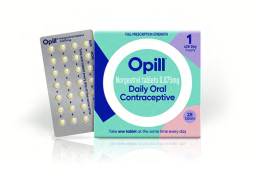
The debate whether coffee is good or bad for you has been argued over for years. However, new research suggests that espresso, whether sipped as a latte, Americano, or even incorporated into a martini, could actually provide more of just an instant caffeine kick. In fact, it may have long-term benefits when it comes to alertness.
In vitro laboratory experiments have found that compounds found in espresso can potentially inhibit the aggregation of tau proteins, a process believed to play a role in the development of Alzheimer’s disease.
While the precise mechanisms underlying dementia are still unclear, the protein tau is known to be a significant player. In healthy individuals, tau proteins contribute to the stability of brain structures. However, in the presence of certain diseases, these proteins can aggregate into fibrils. These “tangles” are thought to be a key factor in the progression of dementia, impairing cognitive functions such as memory and thinking.
Some scientists hypothesize that preventing tau protein aggregation could alleviate dementia symptoms. To investigate this possibility, Mariapina D’Onofrio and her team at the Verona University in Italy, a country known for espresso and the amount they drink on a daily basis, conducted experiments to determine if compounds in coffee could impede tau clumping.
The researchers took commercially available coffee beans and extracted espresso from them, analyzing their chemical composition using nuclear magnetic resonance spectroscopy. They singled out caffeine and trigonelline, both alkaloids, as well as the flavonoid “genistein” and “theobromine,” a compound also found in chocolate, for further investigation.
These molecules, both individually and as part of the complete espresso extract, were incubated alongside a truncated form of the tau protein for up to 40 hours. As the concentration of espresso extract, caffeine, or genistein increased, the fibrils formed were shorter and did not aggregate into larger sheets. The complete espresso extract yielded the most striking results.
Importantly, the shortened fibrils were found to be non-toxic to cells and did not act as “seeds” for further clumping.
Meanwhile, in additional experiments, the researchers also found that both caffeine and the espresso extract were capable of binding to pre-existing tau fibrils.
Italians alone consume approximately 30 million espressos every day in small cups, and tons of research from the past decade has revealed potential health benefits associated with this drink. That’s because espresso happens to be extremely rich in antioxidants and plant compounds that have the ability to reduce inflammation.
Regular consumption has also been linked to a reduced risk of premature death, providing protection against other conditions, like type 2 diabetes, Parkinson’s disease, heart disease, liver disease, as well as particular cancers.
Professor D’Onofrio said, “Coffee extracts contain a large variety of bioactive compounds exhibiting health-beneficial effects. We were able to identify the most abundant constituents.”
“We have presented a large body of evidence that espresso coffee is a source of natural compounds showing beneficial properties in ameliorating tau-related pathologies,” she adds.
While further research is required to fully understand these implications, the preliminary in vitro findings from this study, published in the Journal of Agricultural and Food Chemistry by the American Chemical Society, suggest that espresso’s bioactive compounds could hold promise in protecting against neurodegenerative diseases, including Alzheimer’s.



